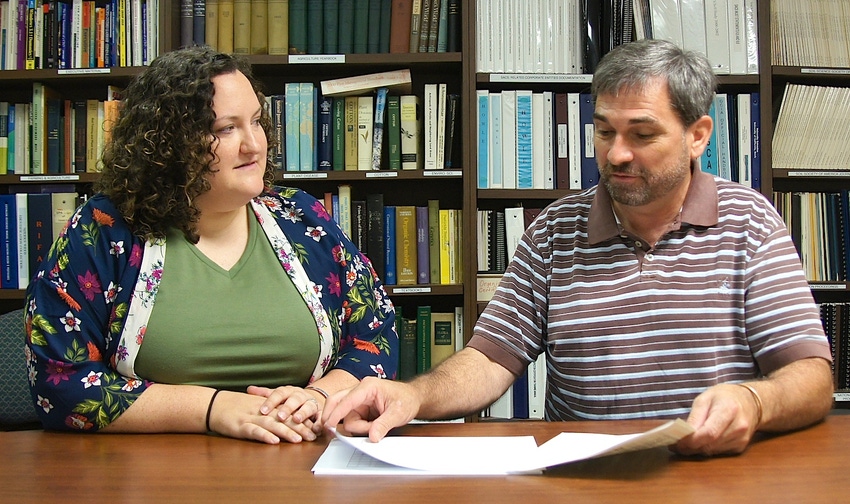July 3, 2019

The South Carolina Department of Pesticide Regulation (DPR) has approved a list of pesticides for use on hemp crops, removing a hurdle farmers have faced since the crop was cleared for production in the state earlier this year.
Both federal and state law have been amended in the past six months to allow licensed production of industrial hemp, a strain of the same plant as marijuana but without its intoxicating effects. The South Carolina Department of Agriculture has approved 114 growers for the state Hemp Farming Program for 2019, however, no pesticides have yet been labeled for use on the crop.
“We don’t want to be in a conundrum where we have growers who have no pesticides to use,” said Tim Drake, DPR State Programs manager. “We’re already seeing samples of young hemp plants with cutworm damage. These are expensive plants. When you’re paying $4 for a plant you can’t afford to lose too many of them.”
The pesticides DPR approved were first adopted for the crop in the state of Washington, which has a history of hemp production. All are classified as 25(b) pesticides under the Federal Insecticide, Fungicide and Rodenticide Act, meaning the U.S. Environmental Protection Agency considers them minimum-risk pesticides.
Drake cautions, though, that not all the pesticides on the list are currently registered for use in South Carolina.
“Before any pesticide on this list is used in South Carolina, the grower must first make sure it is registered for use in the state,” he said, noting that state-registered pesticides are listed online at the DPR website. “Pesticide dealers also must ensure that any pesticide on this list is registered in the state before making it available for wholesale or retail purchase by growers.”
The list is being distributed to Clemson Extension Service agents in counties where the more than 100 licensed hemp farmers in South Carolina reside. Extension agents help farmers adopt best practices is the production of a wide array of crops.
The approved list is a temporary measure adopted to help farmers who are licensed to grow industrial hemp until federal regulations are created. The U.S. Department of Agriculture is expected to issue production regulations by the end of the year. There currently are no EPA-registered pesticides labeled specifically for hemp.
“There are a lot of misconceptions,” said Katie Moore, a Clemson Extension associate with the university’s Pesticide Safety Education Program. “I think many people are under the impression that organic pesticides can be used on hemp. Just because it is organic doesn’t mean it is allowed. It must be labeled for herb crops. You need to read and follow the label.”
Hemp and its cousin, marijuana, are both strains of the Cannabis sativa plant species. They are distinguished by their fiber content and chemistry.
Hemp is more dense in fiber. It also has much lower concentrations of tetrahydrocannabinol, or THC, the psychoactive substance for which marijuana is known.
By law, industrial hemp must have less than 0.3 percent THC, while marijuana may contain between 10 and 100 times that concentration. By contrast, hemp has higher concentrations of cannabidiol, or CBD, which does not have the same psychoactive effects as THC but is approved by the Food and Drug Administration for use controlling epileptic seizures.
Industrial hemp is grown for its fiber and seeds. The strength of hemp fiber makes it valuable in products from textiles to rope. Its seeds can be processed as a food additive or crushed for their oil.
The end use of the product — whether it is grown for its fiber or as a food or oil crop — is a crucial factor in pesticide selection.
“Cannabis plants absorb almost anything put on them,” Drake said. “Because the plants have a tendency to take up the chemicals they are exposed to, it’s important to err on the side of caution. That’s why we have such concern with pesticide residues. Oils will have a higher concentration than will the plants themselves.”
The 2018 U.S. Farm Bill, signed into law in December, established USDA’s Hemp Production Program, legalizing industrial hemp production. The state Hemp Farming Program, administered by the South Carolina Department of Agriculture, followed in March.
The Department of Pesticide Regulation is one of four divisions of Clemson’s Regulatory Services unit. It is responsible for licensing pest management professionals and pesticide applicators, analyzing and registering pesticide products, and investigating cases of pesticide misuse.
Source: Clemson University, which is solely responsible for the information provided and is wholly owned by the source. Informa Business Media and all its subsidiaries are not responsible for any of the content contained in this information asset.
About the Author(s)
You May Also Like




